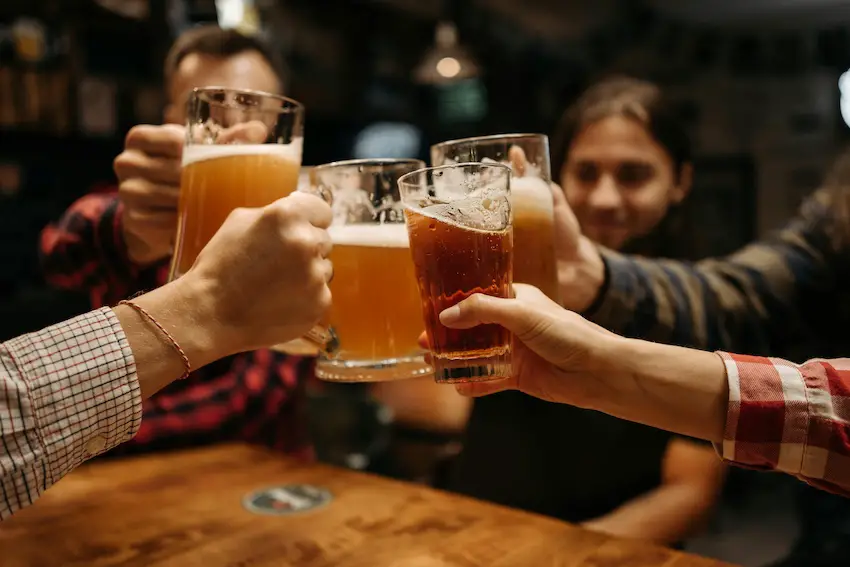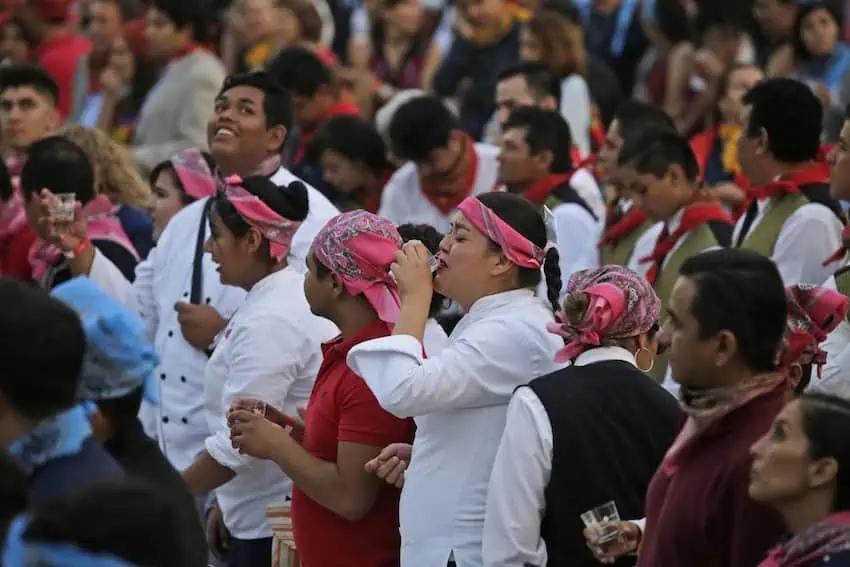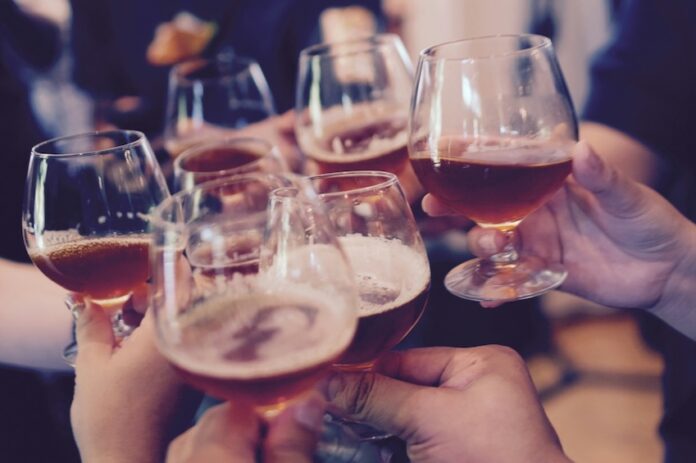While walking my dog today, I got stuck behind a guy smoking a cigarette. To my surprise, the smell of it majorly hit my nostalgia buttons. How long had it been since I’d smelled a cigarette?
Let it be said that I don’t smoke, nor have I ever. I don’t enjoy the smell of cigarette smoke, and I used to be kind of an ass about it, waving my hand dramatically to shoo away the smoke of anyone near me who’d lit up. Too much of it would give me a headache, and I abhorred how the stench would stick to my clothes.

But now, kind of suddenly, hardly anyone smokes. Once Mexico basically outlawed cigarettes everywhere in public, that was that. Some places, of course, still set out ashtrays if they’re outdoors. But for the most part, it’s rare now even at bars to spot a smoker.
I mention this because when I was growing up in the ’80s and ’90s, it seemed like nicotine addiction was virtually impossible to beat. And yet, here we are: the smell of cigarettes now just makes me think of walking around the Waco, Texas, fairgrounds.
Knowing that Mexico seemed to abandon cigarettes so willingly got me thinking. Will other “ills” soon meet the same fate?
I’m thinking specifically of alcohol, though there’s a bit of a list, which also includes processed food. In fact, as a deterrent, Mexico has levied higher taxes on alcohol, junk food and gasoline.
I suppose I get it. None of those things are good for us, though the tax on already-expensive gasoline is frustrating. Still, for a country that’s historically not been very good at collecting taxes, it’s a good way to gather some substantial funds.
Viewed that way, the tax on alcohol is a fantastic idea. Why? Because people are not going to stop drinking it. Cha-ching!
If you’ve spent any amount of time here in Mexico, you know that Mexicans love to party. And usually, alcohol is a big part of that party. It’s even typical to find alcohol at kid parties — for the adults who are nearly always in attendance, of course, not for the kids.

Whereas in my home country, alcohol is seen as slightly deviant, in Mexico, it’s simply a normal part of life. Every little corner store sells an assortment of caguamas (32 oz bottles of beer), and it’s normal to have a drink with one’s lunch or dinner. It’s normal, actually, to drink quite a bit of alcohol during the week.
Is this a problem?
Like all things in life, how big of an issue something is, is typically in the eye of the beholder. And through most people’s eyes here, no, alcohol is not a big problem.
That said, I have a few acquaintances for whom it is. A good friend of mine, for example, insists that she just can’t drink. “Soy bien mala copa,” she says. I’m not quite sure how I’d translate this. Literally, it’s “I’m really a bad drink,” but it means that she gets belligerent and aggressive with alcohol. At least, I suppose, she knows that about herself and so stays away from it.
Another acquaintance of mine clearly has a problem with alcohol but doesn’t seem ready to admit it. I first noticed when this normally very shy person was talkative and hyper at an 8 a.m. parent meeting at my kid’s school. Once I sat next to him, I realized why: the smell of alcohol was all over him!
Would this person be able to find any kind of treatment program if he wanted to? After all, 8 a.m. is pretty early to start, even for Mexico. I have seen the occasional Alcoholics Anonymous sign. And hey — perhaps there’s a whole treatment network that I don’t know about!
But I don’t think there is.

Another point in alcohol’s favor in Mexico: in many ways, it’s a matter of national pride. Pulque has been around since pre-Hispanic times. Tequila is known all over the world for its Mexican origins, as is, increasingly, mezcal. Sotol is a type of mezcal made on both sides of the Mexico-Texas border. I’ve tried varieties on both sides, by the way, and liked the Mexican-made one better.
Wine is also a growing industry in the country, both in the Bajío region and further north in the Valle de Guadalupe. And of course, there’s beer, Mexico’s most-consumed alcohol. While most people are most familiar with the big commercial brands, the country also has a burgeoning artisanal beer scene. Everything from small brewers all over the country to more established brands that you might find at the grocery store offer Mexicans plenty of variety.
So what does all this mean? There’s a lot of alcohol produced here. And plenty of it is tied to national identity and culture. Whether or not people meet the threshold to be considered alcoholics or not is almost irrelevant. Besides, if everyone’s a bit tipsy, it’s hard to be annoyed by those who are very tipsy.
At the very least, Mexico makes a fairly good effort to keep drunk drivers off the road, which is a problem much worse than someone being obnoxious. And like the IEPS tax mentioned above, it’s also a good way to collect government funds through fines and fees for getting one’s car out of the “corralón” after.
So, does Mexico have an alcohol problem? As much as people here like to drink, I’d give my answer as a tentative “no.” Heck, maybe it’s part of the reason people are so friendly and gregarious! Of course, if you don’t like being around people drinking — or you can’t — then this is probably not the place for you.
All that said, we can truly never predict what will happen. Perhaps alcohol will fall out of favor the way cigarettes did. Maybe the government will decide it’s had enough and get serious about sanctioning drunkenness in public. Maybe the kids growing up now will think of alcohol consumption as something only old people do — my kid certainly does.
But for now, we’re fairly free to sit around and enjoy a beer when we feel like it. ¡Salúd!
Sarah DeVries is a writer and translator based in Xalapa, Veracruz. She can be reached through her website, sarahedevries.substack.com.
